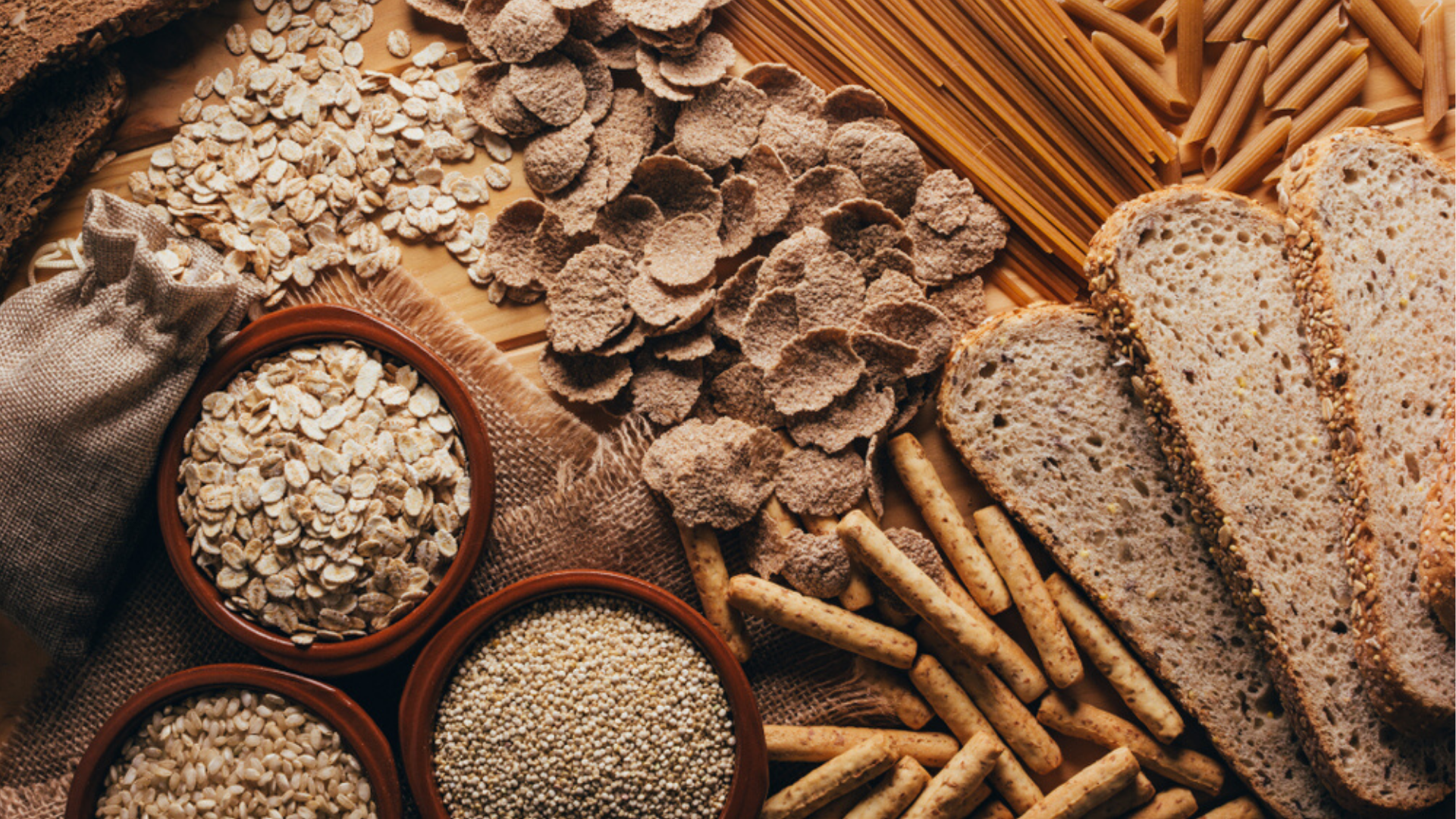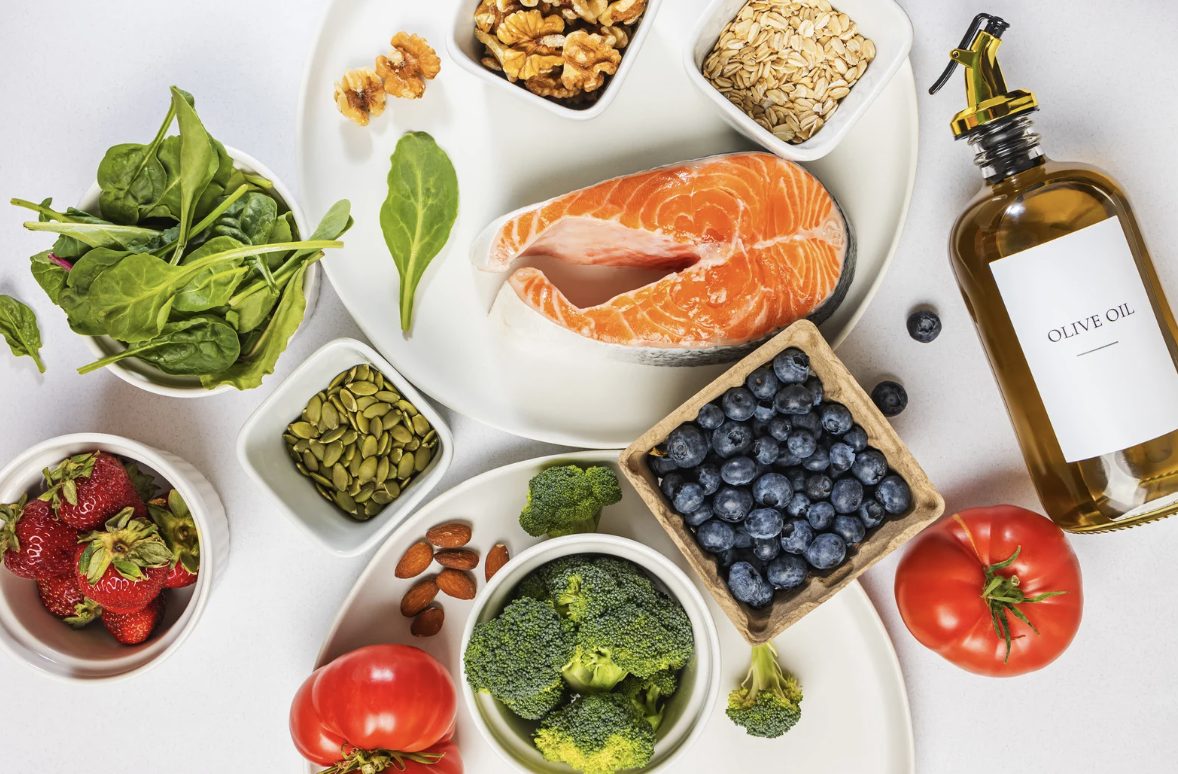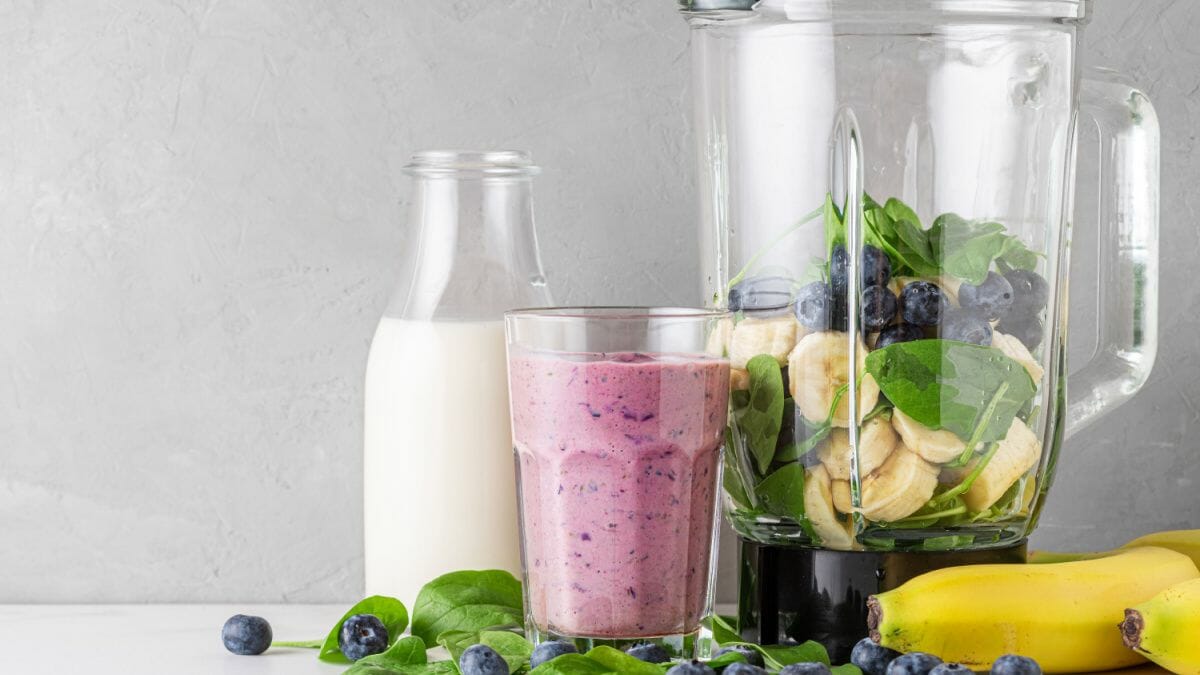
Carbohydrates often get a bad rap in the nutrition world, particularly when it comes to weight loss. However, carbs are not the enemy—they are very much a crucial component of a healthy, well-balanced diet. It’s important to note that not all carbs are created equal, and we need to understand those that will benefit our training versus those that provide no real nutritional value to our overall health. The healthiest carbs are those that are unrefined—or haven’t undergone any processing and are closest to their natural state—including vegetables, fruit, legumes, and whole grains (quinoa, brown rice, oats). Carbohydrates not only act as our primary energy source, but also function to deliver vitamins and minerals, support gut health, and provide fiber to reduce cravings and regulate blood sugars.
What happens when we digest carbohydrates?
All carbohydrates (starches or sugars) break down into glucose. When we consume a carbohydrate-rich meal like whole grain toast or brown rice, our body converts it into glucose which is then sent to the bloodstream. When our glucose levels increase, our body sends out the hormone insulin to utilize this glucose for energy or to store it as glycogen in the liver or muscles for later use.
When we consume too many refined or simple carbohydrates at once, we spike blood sugar levels, causing an immediate rise and quick drop that makes us feel tired (also known as the ‘sugar crash’). Complex carbs, on the other hand, contain fiber and do not cause an immediate peak in blood sugars. Instead, these complex carbs take longer to digest, have a slower rate of energy release throughout the day, and promote balanced blood sugars to minimize cravings for additional sugar. In order to avoid this rollercoaster ride of peaks and lows of blood sugar, it’s best to avoid refined carbs, minimize the amount of simple carbs, and regularly incorporate healthy forms of complex carbs. Quality carbohydrates that are rich in fiber will not only replenish energy, but will aid in regulating blood sugar while also lowering your body’s absorption of fat and cholesterol.
Complex carbohydrates
Both starches and fiber are healthy forms of complex carbs, which contain many glucose molecules. While starch is broken down into glucose and absorbed, we cannot digest the bonds between fiber molecules, allowing it to move through our GI tract undigested. Fiber is key to slowing digestion to allow for the removal of waste and toxins in the body. These low-glycemic carbs—including vegetables, fruit, quinoa, brown rice, and legumes—don’t cause an immediate spike in blood sugar. Whole forms of complex carbs are minimally processed and make an ideal post-workout food to replenish lost energy stores and aid recovery.
Simple carbohydrates
Simple carbs are also known as ‘simple sugars.’ These typically have a high glycemic index and result in spikes in blood sugars. Aside from immediate energy, simple sugars provide no nutrition and are typically considered ‘empty calories.’ Processed foods contain added sugar to enhance flavor, however, too much sugar can lead to additional cravings and excess calorie consumption.
What to avoid
Refined or processed forms of carbohydrates
- Refined sugar (high fructose corn syrup, etc.)
- White potatoes
- White bread
- Corn
- Pasta
- Fruit snacks and gummies
- Sweetened yogurt
- Breakfast cereals
- Soda
- Potato chips
- Ice cream
- Crackers
What to include
It’s best to opt for whole foods over processed while incorporating both lean proteins and healthy fats to maintain feelings of fullness and keep blood sugars balanced. When grocery shopping, it’s always a good idea to check the nutrition label/panel to ensure that you are selecting a quality carbohydrate:
- Whole grain, whole wheat or sprouted grain bread (Ezekiel)
- Products without artificial coloring or added forms of sugar (high-fructose corn syrup) or preservatives
- Swap fruit juices and fruit gummies for whole fruits, as they have more fiber and less sugar than their processed forms
- Swap white bread for whole grain breads, which contain more fiber and no refined sugar
- Swap white potatoes for beans (black, chickpea, kidney), as these also contain a quality source of protein and digest more slowly to stabilize blood sugar and promote feelings of fullness
- Swap white rice for quinoa or oats






